Bees can now check in at Kew’s new pollinator hotel
At Wakehurst, Kew’s wild botanic garden, artist Kristina Pulejkova unveils four functional sculptures that tell the hidden story of seeds and act as a refuge for bees during the heat of summer
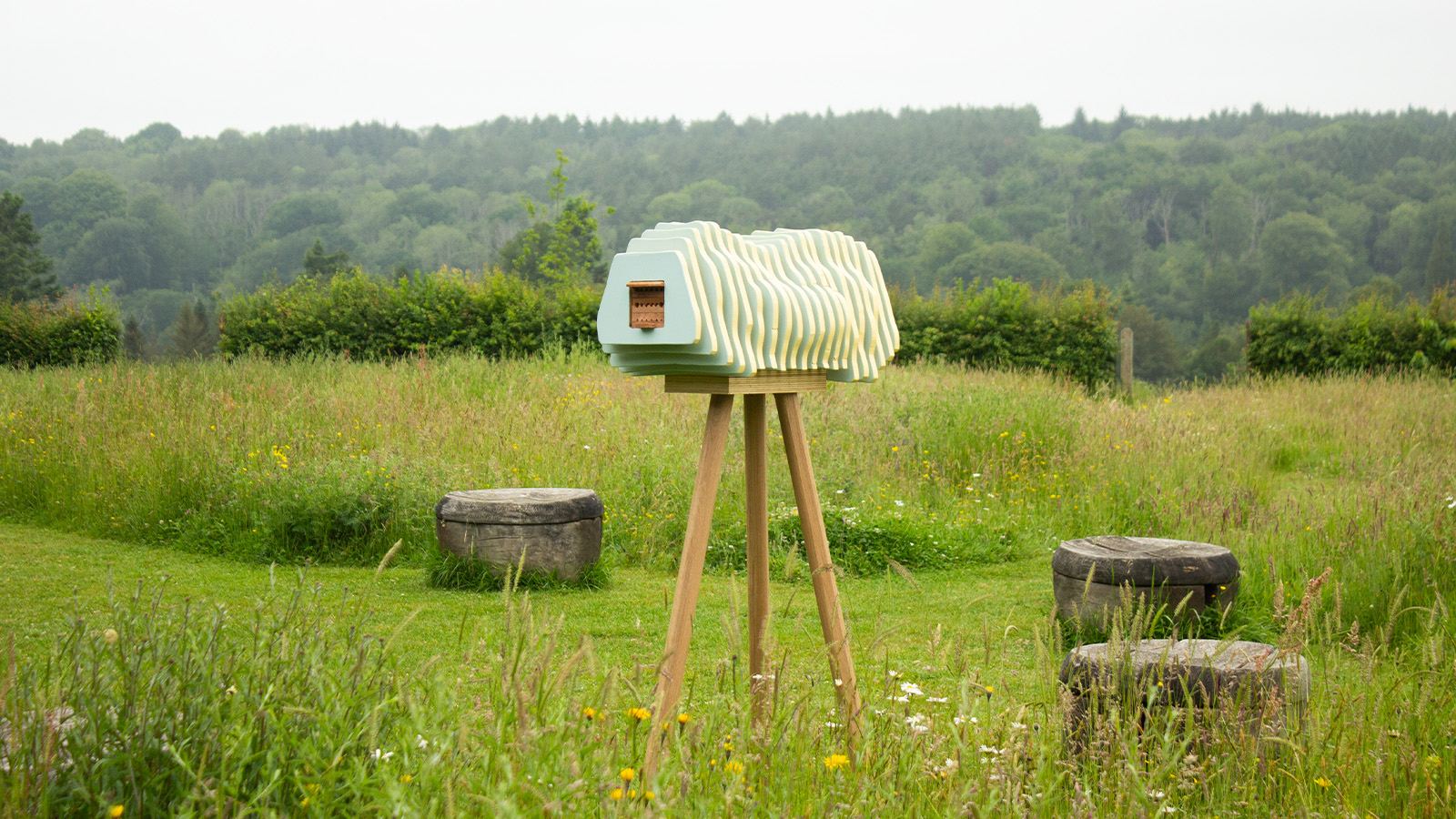
Receive our daily digest of inspiration, escapism and design stories from around the world direct to your inbox.
You are now subscribed
Your newsletter sign-up was successful
Want to add more newsletters?

Daily (Mon-Sun)
Daily Digest
Sign up for global news and reviews, a Wallpaper* take on architecture, design, art & culture, fashion & beauty, travel, tech, watches & jewellery and more.

Monthly, coming soon
The Rundown
A design-minded take on the world of style from Wallpaper* fashion features editor Jack Moss, from global runway shows to insider news and emerging trends.

Monthly, coming soon
The Design File
A closer look at the people and places shaping design, from inspiring interiors to exceptional products, in an expert edit by Wallpaper* global design director Hugo Macdonald.
Nestled in Wakehurst Kew’s wild botanic garden in West Sussex, a new installation is unveiled for this summer. ‘Seed Stories’ by visual artist Kristina Pulejkova focuses on the life of seeds, while also serving as a practical contribution to pollinator conservation in the UK.
The installation integrates sustainability, ecological science and digital technology through its four wooden sculptures. Pulejkova designed the pieces not only to serve as artwork but also as hotels for bees seeking refuge in environmentally challenging times.
‘Seed Stories’ by Kristina Pulejkova at Wakehurst Kew’s wild botanic garden
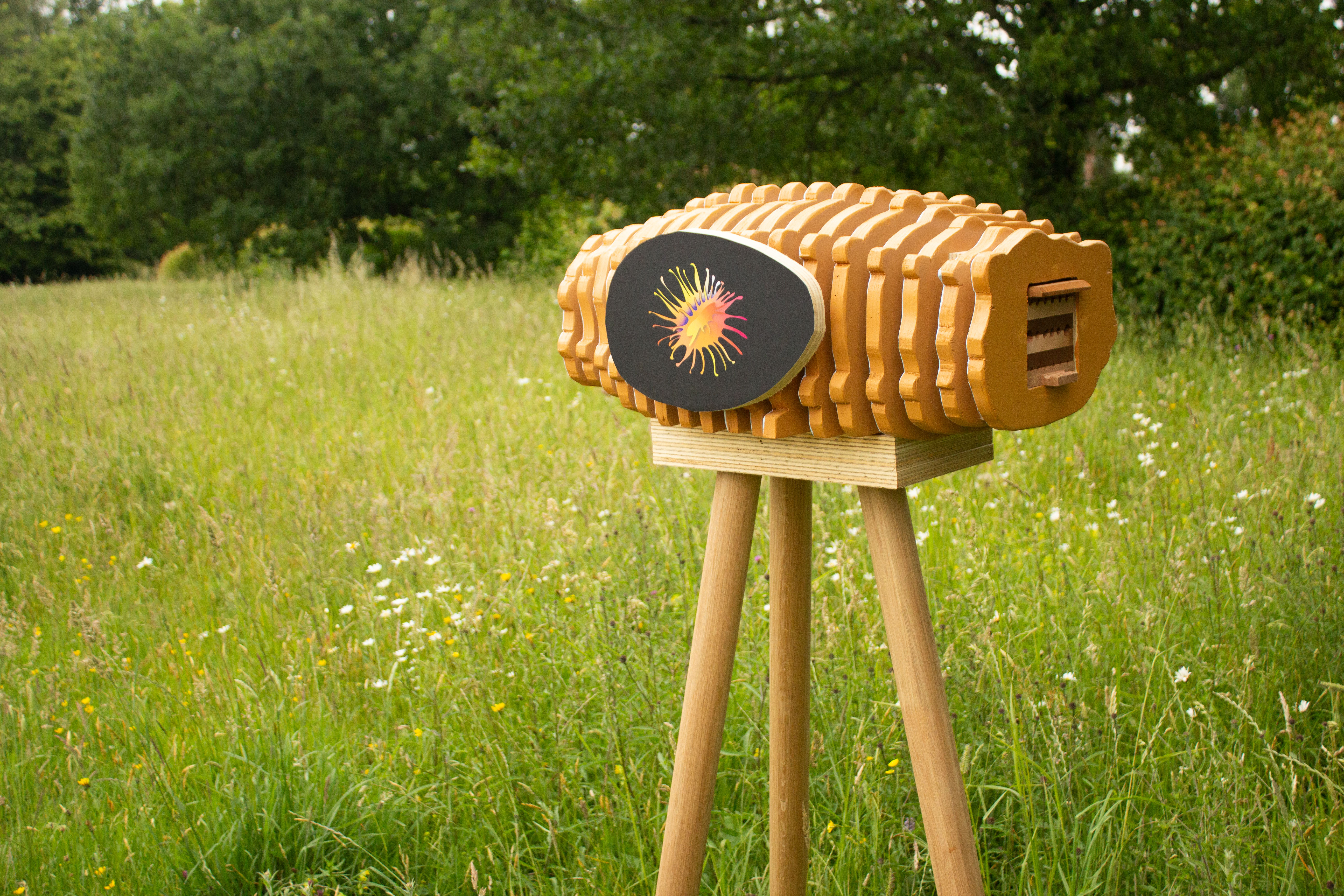
The design is inspired by Kew’s Millennium Seed Bank’s (MSB) collection (the world’s largest underground seed bank and conservation resource for diverse wild plant species). Pulejkova’s functional artworks are constructed from untreated marine ply and cedar, materials chosen for their environmental compatibility and natural antifungal and aromatic properties, are bee-friendly and allow the creatures safety from instances of extreme heat during British summers.
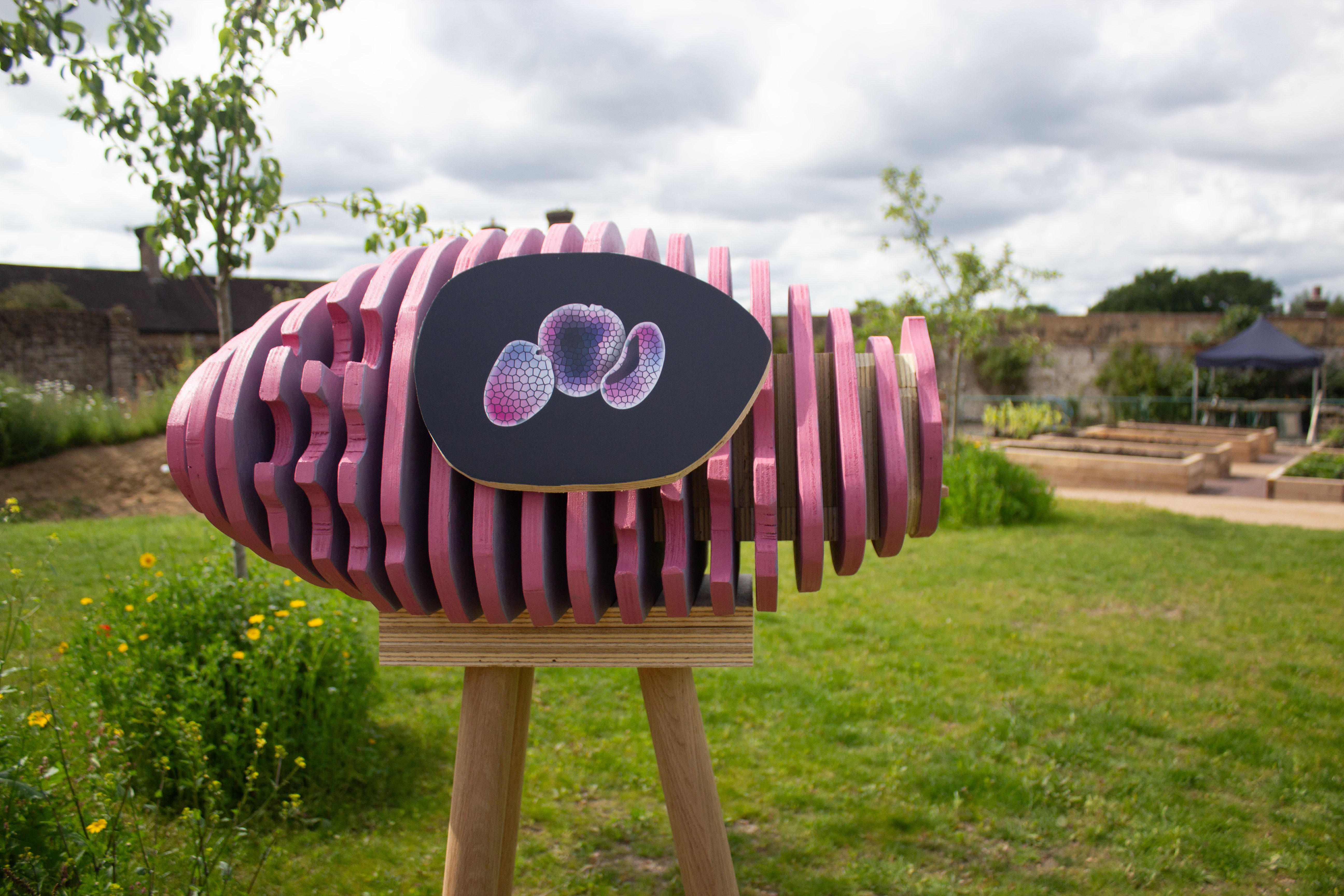
The design of the pollinator hotels is scientifically informed. Pulejkova worked closely with Dr Janine Griffiths-Lee, who leads the ‘Trees for Bees’ habitat restoration initiative. The ‘hotel’ entrances were chosen based on data on bee preferences, colours tailored to the bee’s visual spectrum (favouring blues, yellows and violets, while avoiding reds and greens) The design of the installation enables researchers to collect pollen left behind in the hotels, facilitating the study of which species are attracted to specific tree types.
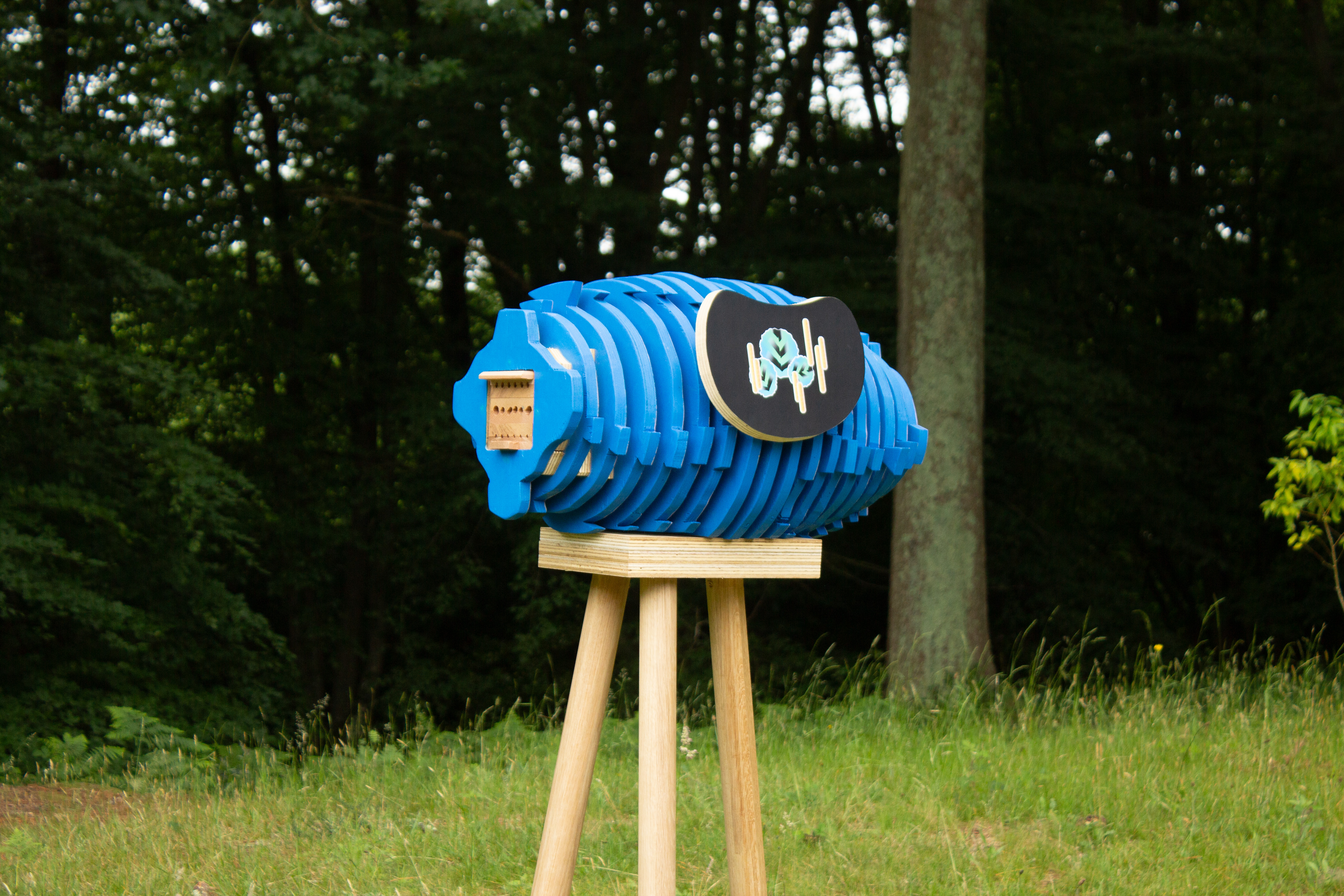
AR is also integrated into the four sculptures and is accessed via an app. When scanned, each interactive installation presents an educational story about a particular seed from the Millennium Seed Bank, with a focus on the facility's role in climate preservation, biodiversity and global food security.
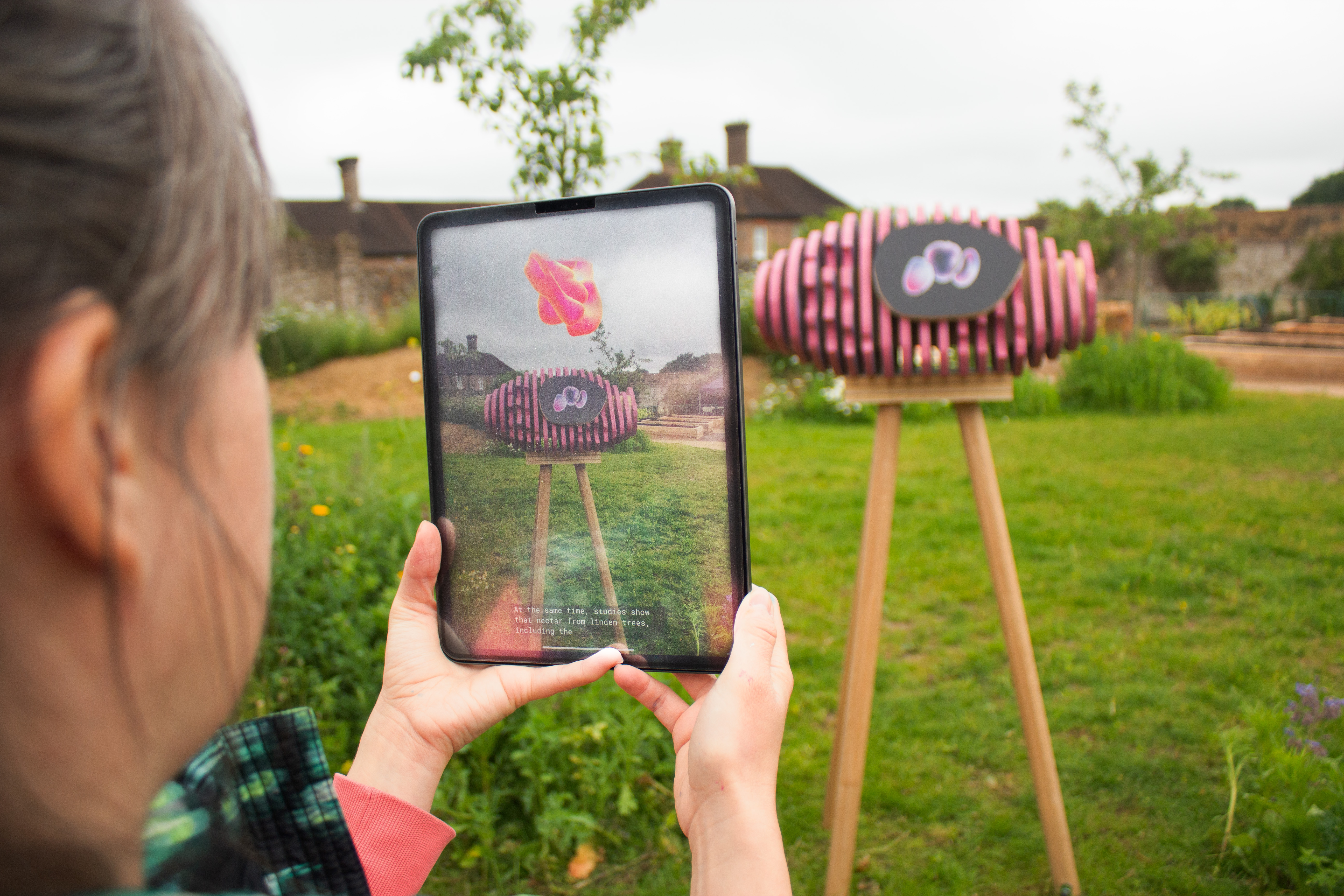
By installing pollinator hotels directly into the landscape and aligning them with ongoing scientific research, this project contributes to broader conservation efforts. It offers shelter, promotes biodiversity and acts as a living laboratory for understanding how bees interact with different plants and environments. ‘Seed Stories’ also educates the public, raising awareness of the delicate relationships between pollinators, seeds and the landscape we often take for granted.

‘Seed Stories’ was developed in collaboration with Kew’s ‘Nature Unlocked’ programme, which researches the value of UK biodiversity to inform nature-based solutions to critical challenges such as climate change and food security. Beyond the visually organic design, the installation highlights the interconnections between seeds, the future of biodiversity, and pollinators like bees, whose population is declining at an alarming rate.
Receive our daily digest of inspiration, escapism and design stories from around the world direct to your inbox.
‘Seed Stories’ is part of ‘Seedscapes’, which runs from 4 July to 14 September 2025 at Wakehurst, Kew's wild botanic garden www.kew.org
Tianna Williams is Wallpaper’s staff writer. When she isn’t writing extensively across varying content pillars, ranging from design and architecture to travel and art, she also helps put together the daily newsletter. She enjoys speaking to emerging artists, designers and architects, writing about gorgeously designed houses and restaurants, and day-dreaming about her next travel destination.